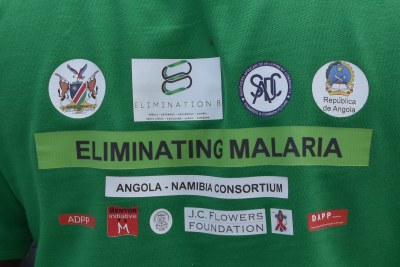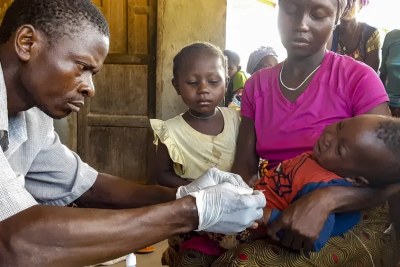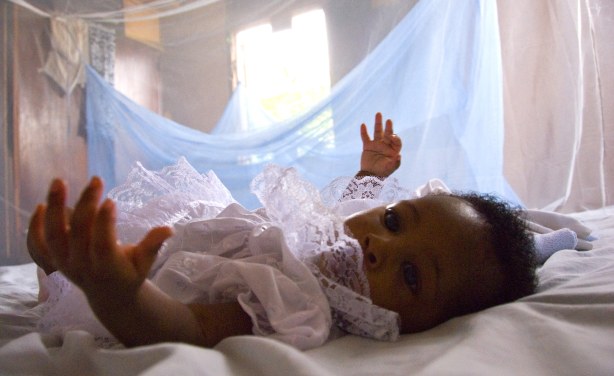-
Africa: Child Malaria Deaths 'Slashed By Rainy Season Regimen'
SciDev.Net, 22 December 2020
Giving antimalarial medicines to children monthly during the rainy season cut malaria deaths in children by 42 per cent, making a case for wide implementation in malaria-endemic… Read more »
-
Central African Republic: Malaria Is a Deadly Killer of Children During Coronavirus in CAR
MSF, 15 September 2020
The hospital in Batangafo - a town of 31,000 people, including 22,000 displaced from elsewhere in the Central African Republic - is bustling with activity. While a particular focus… Read more »
-
Africa: How Can Countries Continue to Combat Malaria During a Pandemic?
African Arguments, 11 November 2020
With medical disruptions due to COVID-19 likely to kill more people in Africa than the disease itself, two countries provide interesting lessons. Read more »
-
Africa: Still Wrong - Malaria Doesn't Kill a Child Every 30 Seconds in Africa
Africa Check, 14 June 2019
An old claim about the number of child deaths in Africa from malaria has surfaced again. Read more »
Child Malaria Deaths 'Slashed By Rainy Season Regimen' - Report
Giving antimalarial medicines to children monthly during the rainy season cut malaria deaths in children by 42%, making a case for wide implementation in malaria-endemic African regions, according to a study published on 05 December in the Lancets. In 2012, the World Health Organization (WHO) issued guidelines for implementing intermittent monthly drug administration, also known as Seasonal Malaria Chemoprevention (SMC), in areas of high transmission that occurs during particular seasons to help prevent malaria in children under five years old. The study evaluates SMC implemented in the Sahel region, Burkina Faso, Chad, Gambia, Guinea, Mali, Niger and Nigeria in 2015 targeting about 3.6 million children and an additional 7.6 million children in the seven countries in 2016. Malaria killed 643,000 people globally in 2019 and more than half of these were children under five, with the majority of the deaths occurring in West and Central Africa. Data collected from outpatient clinics also showed that malaria cases reduced by 25% in Nigeria in 2016 while in Gambia it went down by 55% in the same year.
InFocus
-
International organizations working to sustain the dramatic reductions of malaria deaths across Africa are calling for a 'holistic' approach to intertwined crises in health, ... Read more »
-
Scientists are calling for immediate action to prevent a species of mosquito new to Africa - which, unusually, thrives in urban areas - from spreading. It has already been reported ... Read more »




